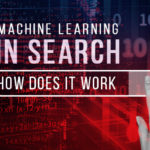Have you noticed the relevant product recommendations by Amazon or the interesting movie suggestions by Netflix ? This is not a coincidence but the work of Artificial Intelligence systems supporting ecommerce sites.
Artificial Intelligence or AI is being put to use by tech giants as well as by smaller players across all industries. AI application is changing everything from gaming experience to security systems.
Ecommerce is also undergoing transformation as AI is enriching customers’ experience while shopping online. In fact, a study by Business Insider estimated that as much as 85% of the customer interactions will be managed without a human by 2020.
This is made possible because of the big data collected on customers from various sources. Combining high processing capability and machine learning by computers allows AI to learn about customers and give a human touch to shopping online. AI can take on the roles of salesperson, inventory manager, marketing and store manager!
Virtual Assistant
AI is bringing back the experience of a salesperson helping you out in a brick and mortar store. Human like virtual assistant can recommend products based on your past purchases and your customer profile. A detailed database gathered about each user allows assistants to give hyper personalized experience.
Virtual assistants can also suggest on the right clothing based on your location, weather or suggest a suitable phone according to your day–to-day usage. For example, a virtual assistant may help you to choose the right type of boot for your dress.
This is done by searching the web for information on fashion and boots. The assistant visits fashion blogs, looks at Pinterest images and gathers data on similar shoppers to suggest the best pair of boots. Your assistant will continuously learn about you and your interest to come up with relevant product recommendations.
Companies are also working on voice recognizing assistants that can have a conversation with shoppers. Soon it would be possible to tell your personal AI powered assistant what you want rather than searching for the right keyword for your product. Natural language programming enabled AI systems will be intuitive and understand the context of interaction like a human.
Personalized Store
Ecommerce stores have had to choose their layout, branding and product assortment that would appeal to their target until now. This will soon change as machines learn about you to give you a personalized store altogether.
People of different countries may prefer a different layout and feel of the store. Similarly, different age demographics may have different expectation from ecommerce sites. Baby boomers may be more likely to buy a product bought by their friends whereas millennials may prefer to wait until prices drop.
AI allows online stores to change their layout, offers, and branding to fit the customer. This is done by customizing smart banners, smart pages and smart elements that adapt to the customer visiting your site. This is like walking into a store custom built for you.
Fight Counterfeits
Artificial Intelligence will also help to identify counterfeit and duplicate products. Chicago based start-up 3PM Marketplace Solution is working on an algorithm that identifies counterfeit products. The algorithm uses pointers such as fake reviews, customer reviews and data from other marketplaces to spot a duplicate product.
Removing deceiving third party sellers will build trust and credibility for sites using AI.
Intelligent Marketing
According to Conversica, one third of the leads are never followed up with. AI can reduce missed leads by automating follow up messages and remarketing to visitors who browsed for considerable amount of time.
AI can be used for pre-sales marketing too. This is already done by many sites by remarketing the products that a customer abandoned in shopping cart. AI can target a customer who visited and follow them in all social media channels to show the exact same ad. For example, searching for mobile phones will trigger the AI powered remarketing to show your smartphone advertisements on all social media channels and display ads.
Using machines to learn and improve also allows a lot of marketing work to be automated. Companies are currently automating marketing tasks such as mailing, lead conversion and answering objections of prospects.
Store Operations
AI is also helping at the back end of ecommerce stores. The usual business intelligence systems fall short in inventory management and assortment management in today’s dynamic marketplace. AI can forecast demand trends based on predictive analysis in these cases.
Many factors such as competitors pricing, velocity of orders, supply and demand, seasonal popularity affect the demand of a product. By using AI to estimate stock required the store can avoid being out of stock or over-stoking on products that won’t sell in future.
After Sales Service
The role of marketing does not end at sale. After-sales service is important to get repeat business. AI is helping personalize after-sales service by automated feedback forms, timely mailers and renewal/replacement alerts.
Some brands are even connecting to intelligent appliances and send service alerts or fix problems remotely. For example, AI powered service system at Bosch can detect service issues with its dryers and washers and notify customers.
Being in continuous contact with customers ensure share of mind and brand loyalty.
AI enabled ecommerce sites are able to process data that is impossible for a human to comprehend. This gives the opportunity to gather data on the bigger picture for strategic decisions and yet act on a granular level to give a personalized experience to customers. AI is changing how customers browse, shop and experience ecommerce for the better.







